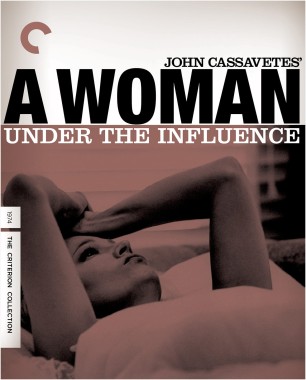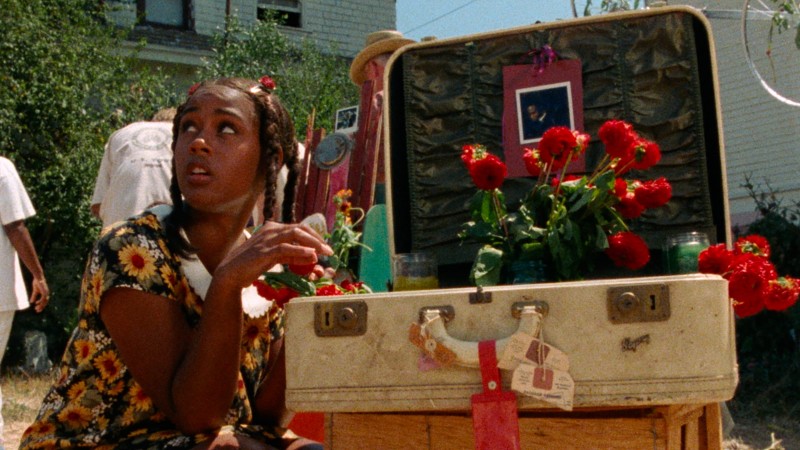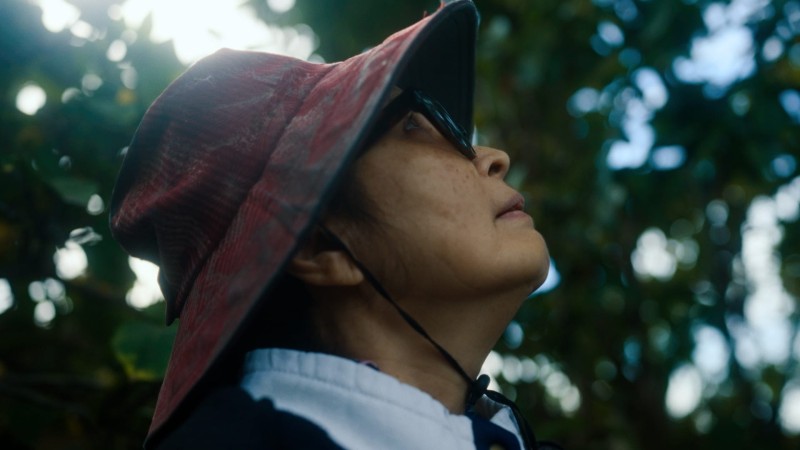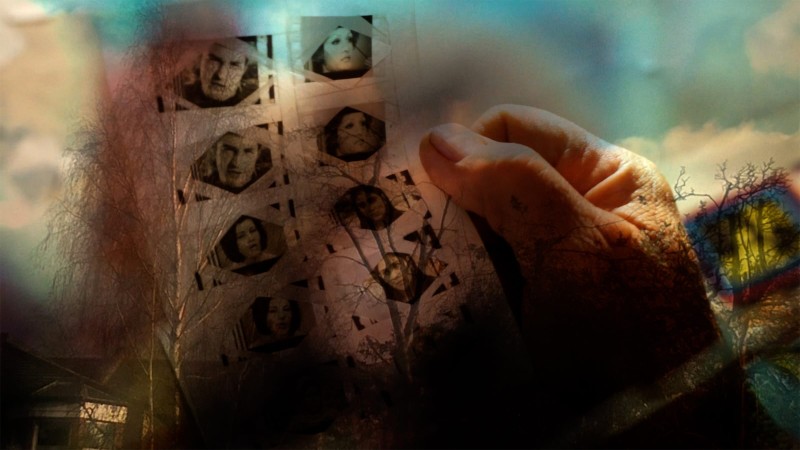A Conversation with Bo Harwood

In 1970, John Cassavetes was deep into cutting (and recutting) Husbands, continually and unapologetically reneging on his delivery date and upgrading Columbia’s postproduction headache to a full-blown migraine. He was introduced to Bo Harwood in Los Angeles, after a screening of The Bach Train, a trippy 16 mm feature with a score by Harwood—his first. And Cassavetes liked what he heard. “It was terrific,” he told Harwood that afternoon. “I loved its freedom and its dynamics.” Right then and there, Cassavetes offered Harwood a job assisting in the Husbands cutting room. Harwood barely had any editing experience, but that’s why Cassavetes wanted him; as he was to learn many times over, the filmmaker relished the opportunity to push people out of themselves, to throw his crew face-first into the deep end of their creative unknown. The ways they stayed afloat, the bent humanity that emerged from that instability, are where he caught character in action. “He enjoyed putting you on ground that was completely unfamiliar,” Harwood explains. “That was his job.” For instance: Improvising his way through the Husbands gig, Harwood discovered he had a knack for editing sound. Cassavetes promoted him to music supervisor on his next film, Minnie and Moskowitz . . . then to sound designer and composer on A Woman Under the Influence . . . and on through Love Streams, the last true Cassavetes film, and the most daring.
Sam Wasson: All the times John threw you way out of your comfort zone—did you feel like it served you?
Bo Harwood: It served me because I had nothing and had to figure out a way to make it work. I had to make it sound like what it looked like, and John loved to watch people figure out their way of how to do stuff. It didn’t necessarily have to be artistic. He would love it when I would not take a lunch break and I was planting mics everywhere.
SW: All that frantic figuring out must have terrified you.
BH: I was terrified! The first week, I was throwing up.
SW: Is that how Cassavetes elicited the score for A Woman Under the Influence?Putting you on unfamiliar ground?
BH: One day during AWoman Under the Influence, he came to visit me in Peter Falk’s dressing room [at Universal, where Falk was shooting Columbo], which Peter had given me to turn into my music room. John heard what I was working on, and he said, “Bo, I want you to do this on piano.” I said, “John, I don’t play piano.” He said, “So learn piano.” So that’s what I did. Within a week, I had a main theme and a second theme and all that kind of stuff written. And I was terrified. But he liked what it sounded like—like a guy who didn’t know how to play the piano.
SW: Is the recorded sound in a Cassavetes movie pretty close to the final?
BH: Yes, mostly. Sometimes too close for my taste.
SW: So then what happens in the mix?
BH: It’s straightforward. Nothing fancy. In the earlier films, he hardly even smoothed out the cuts. You know, the audio. It didn’t bother him. And it bothered me! But John liked it. At the beginning of A Woman Under the Influence, the idea was that I’d start with a temp track and then we’d orchestrate. But it never happened. John loved the temp and wanted to stay with it. Believe me, it wasn’t the money. If John wanted the money, he could get it; he just fell in love with the regular tracks. It happened a lot. Even if we had rerecorded it he’d go back to the original temp, sometimes for the entire soundtrack! “Bo, do me a favor. Go back to music one . . .” He’d look at me and say, “I gotta go with that, Bo.”
SW: Rawness.
BH: Innocence. That’s what he loved.
SW: Is it fair to say John was tone-deaf?
BH: I suppose so. He probably was.
SW: So how did he communicate musically?
BH: He would pound on a piano, pound on anything he could. Pound on bongos! Then he’d leave me alone with it. A lot of the songs we wrote together were improvised, or began as improvised riffs. He’d just start going, and I’d just start doing stuff behind him, and if it was interesting he’d leave me with it for a while and I’d do a rough demo and then he’d come back . . . He knew I’d figure out how to do it.
SW: All the emotion on-screen in John’s movies, does that crowd out opportunities for music?
BH: Quite the opposite. It gives you an infinite number of options to change the values of that scene. You can put down all types of music. You see, John doesn’t like score . . . He’d rather think of it as a radio in the next room or something.
SW: Except for in Opening Night.
BH: That’s when he told me he wanted an orchestra. That was a real departure for John musically.
SW: From one picture to the next, it seems John got more and more interested in music.
BH: Yes, yes. As years rolled by, each film I did for him he was willing to commit to more music, more sophistication, and allow me to take it into the studio and rerecord it, which was hardly ever done in the earlier films. He allowed orchestration for the first time in Opening Night, and introduced me to Booker T., as in Booker T. and the MGs. The guy was brilliant. He could write an orchestration chart like he was writing a letter to Mom.
SW: So Love Streams began production in Los Angeles late in 1981. Before it was a film, it was one of a sequence of plays Cassavetes directed called Three Plays of Love and Hate. From what I understand, tickets were impossible to come by, even for industry people, and Cassavetes turned down the offer to have the work filmed.
BH: It was the early days of cable, and Columbia offered John an exorbitant fee to shoot the plays, and John really didn’t want to do it. He didn’t want to change the intention of what we were doing, and money changes that. Always. That’s something I learned from him. I can’t tell you how many times we turned down money when we were fucking broke. I don’t know anybody who’d be broke and walk away from a couple million bucks. He just didn’t want that person’s involvement in the work.
SW: Even though the work was done, in this case?
BH: John was a purist. At the very end, we were invited to go to New York with at least two of the Three Plays, off Broadway, and we were like “Whoa!” And we were all really excited, and he said, “Look, guys, we had a wonderful event here. We turned this hole-in-the-wall into this bizarre theater [the Center Theater in Los Angeles] . . . walk away. Walk away.” And that’s what we did. We walked away. Same thing with the money. Even when they offered us money up front, right before the plays went up. John said, “What am I going to do? Give Peter Falk a hundred thousand dollars? Give Diahnne Abbott ten? How do you do that? That causes resentments. It’ll just kill what we’re doing.” So everybody just started to let go. John turned down probably a total of something close to six million dollars there.
SW: And it’s not like John didn’t need the money!
BH: He had no money! The year that we did the plays, he had to spent some of his own money. He thought he was only going to spend 50K; I think he spent 150.
SW: When did you find out John had cirrhosis?
BH: Then. During the plays. His stomach was starting to extend. He told me and a bunch of other people before it was that noticeable. He just didn’t trust doctors, didn’t like doctors, didn’t even think about a liver transplant. He was only given a year to live. Well, he ended up living six more years.
SW: Did you have a sense then that Love Streams was going to be his last picture?
BH: We never talked about that. But given his condition, I’d be really surprised if he didn’t think of it seriously as probably being his last film. That’s why at the end of it, when he’s waving at the camera, it just gets me.
SW: It seems to be a real summing-up.
BH: I never looked at it like that, but you’re right. I agree with you.
SW: You lived with John for a while, right?
BH: During the plays, he told me, “Look, stay with us.” I stayed with them for damn near six months.
SW: What goes on at John’s house? Is it anything like a Cassavetes movie?
BH: It’s all mundane. John’s out working in his rose garden. Usually, when he’s doing a project, he’s not home very much. I wish I could tell you how that marriage worked. To me, it was an amazing thing that they did. I mean, John had some things that he believed in, keeping women off balance, leaving a little mystery. He was big on that. I remember one night we’d been up at least an entire night, maybe two, preparing for a screening, and it was early in the morning and he went, “Oh, shit! I just remembered I promised I’d take Gena shopping!” This guy hadn’t slept in forty-eight hours, and he put on his happy face and drove home. “Honey? You ready?” “For what?” “I thought we’re going shopping.” “John, you haven’t slept!” “I’m fine! Come on. Let’s go! I’ll be out in the car.” And he was ready to die! But he would go out of his way to do something special for her. Not always, but occasionally. And she knew John that well. She knew that was what he had to do when he did a project—he ate it, he slept it—and sometimes he wouldn’t be home. He’d wrangle some sucker like me to sit at the Moviola because he was too blind to fucking edit. If John was home, he’d be sleeping because he was so dog tired, or he’d be working out in his rose garden.
SW: It’s often been said that John made his crew into a family. What does that mean?
BH: It mattered to him who we were and what we wanted. When you’re asking people into a project, ask what their intentions are. Why are they here? What’s important to them? If you’re in a position of hiring, it’s really easy to get a great group of people together, but if you do it right you’ll have camaraderie out the ass. For no extra money you can produce a film and have a ball doing it, because you brought in the right people who are willing to work together. That’s why John didn’t want to give out titles on the Three Plays. My job was to filter people in, to see where they were coming from. We started with four people, and a month later we had two hundred people, all working for nothing, and we were tearing the shit out of this place and everybody was working on it. John was on his hands and knees scrubbing the floors.
After the Three Plays, I went to Canada, to Montreal. I was totally in love, and I had a studio going and a partner, and we were doing great up there. It was a golden time. Then when John was getting ready to shoot Love Streams, he wanted me to come down and be the sound and music guy. I knew we were talking about a year. I said, “John, I got this whole thing up here. Let me just do the music.” John said, “No, I want you to do both. I want you to be there. All or nothing.” After about an hour-and-a-half conversation, it was basically clear that I wasn’t about to leave my situation up there. But that was a tough decision for me, because John was like my dad!
Two weeks later I get a phone call from Al Ruban. He said Mike Denecke, who was working on the picture, wanted to take John up to the next level. He wanted John to mix in stereo and all that stuff. Al offered me a grand a week to come down to L.A. and work as a liaison between Denecke and the producers. I jumped on an airplane and came down. About five days later, on a lunch break up at John’s house, Denecke came storming over to me. He had just had this argument with Ruban. He said, “I’m outta here! It’s all yours.” I said, “I don’t want it!” Mike said, “Well, I’m out of here.” And there I was doing the one thing I didn’t want to do: sound. So I was fucked! But I didn’t care, I was in love. Meanwhile, he had gotten Elmer Bernstein to do the music. Well, a week later we were shooting up at the house, and Al asked to have a word with me. He said, “Look, Elmer Bernstein was supposed to hand in an outline for the operetta dream sequence and we just found out he’s in Europe and left nothing. I just fired him.”
SW: So now you’re on music?
BH: [Laughs] Pretty much. So Al asks me, “How long do you think it would take you to write an operetta?” I said, “What’s an operetta?” He gave me two weeks.
So I transferred out of sound—had a guy from Canada brought in named Richard Lightstone—and I started thinking about what an operetta meant to me. I didn’t listen to operetta. Not “What is an operetta?”but “What does it feel like?”So I started working on this melody in my music room on Highland and played it for John, and he liked it a lot, and about four hours later we had it written. It was done. John had done all the lyrics and we were ready to record. I recorded it all using my keyboard for an orchestra, and bounced it up to 24 tracks in the studio and brought in a full orchestra for Gena and this guy who was going to do Seymour’s voice. And we did it. Gena was afraid to sing, but I just told her to speak it. It took a lot of relaxing her, because she hates the sound of her own voice. Anybody who can’t sing hates the sound of their voice. But it was great. A complete success.
Two weeks later we shot it to playback.
SW: How was the John of Love Streams different?
BH: He wanted more music than we’d ever used before. There was just a lot of music in it. Every time we had a dull moment it was like he was thinking of music. He’d never been like that on any of his films.
SW: The music stops abruptly at the end. Why?
BH: Because . . . it just did something to him. He never changed that. He had it in a trial and left it in.
SW: It didn’t have to make sense to you?
BH: Absolutely not. I mean, that last song, I wanted to rerecord—“I’ll Leave It up to You.” When I told him I wanted to fix it, he said no. He loved it! If I tried to get too slick or too clever about something, he’d just vomit. It was a raw demo, but he liked that. It worked for John, and he didn’t feel like he had to justify it. He’d try to get you to understand—“Bo, don’t you get it?” Sometimes he would almost plead with you to come around, but if you didn’t get it, well, too bad.
I’m telling you, it was a family. When he was around the people he was working with, the people he loved, who all admired him—when you’re working with someone like that who you really look up to, when they come to you and tell you you’re fucking wonderful, you can do anything, it’s watery eyes or something like that, it’s your best audience. It empowers you. [Pauses] I love talking about John. Nobody’s like John. Nobody’s even close.
SW: When is he most with you nowadays?
BH: Every day. I think about John every day. Mike Ferris and I go visit his graveside every February 3 [the date of Cassavetes’s death] without fail.







